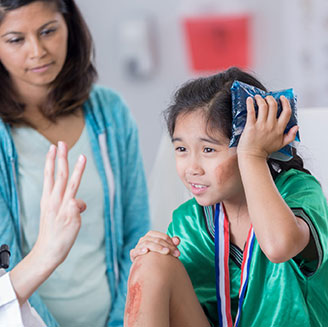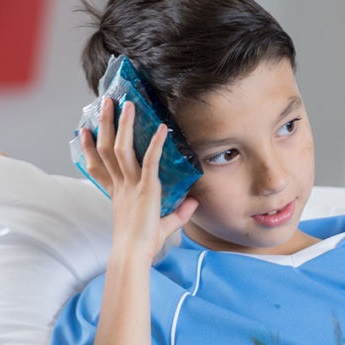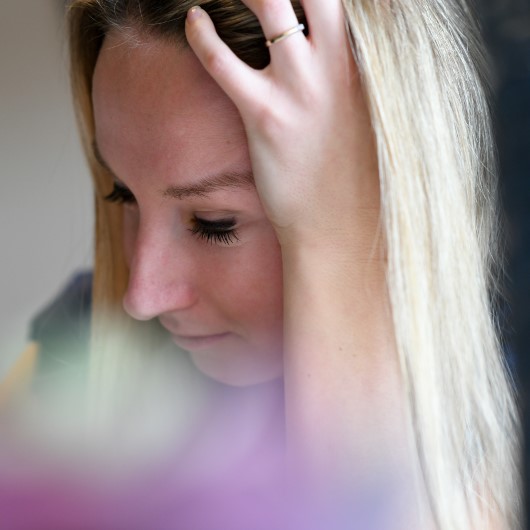Concussion and Brain Trauma Treatment in New Jersey
Following a Concussion, Early Intervention Makes A Difference
We provide follow-up evaluation and treatment during the acute phase (1-5 days) after a concussion or traumatic brain injury, with a goal of maximizing recovery and reducing disability associated with head injury and Post Concussive Syndrome. We also focus on prevention and pre-screening to capture baseline testing, which is helpful in tracking recovery if an individual sustains an injury.
If you have been diagnosed with a concussion, our experts will formally evaluate your health history, symptoms and neurological condition during a comprehensive consultation. Concussion consultations are typically scheduled within the first five days after your injury. Depending on the extent of your injury and severity of your symptoms, your health care provider may order a computed tomography (CT) scan or magnetic resonance imaging (MRI) study to check for concussion-related complications.
Concussion-Related Conditions We Treat
More than 75% of head injuries are mild and involve no loss of consciousness, but can result in significant symptoms and residual functional deficits that require further evaluation and treatment including:
- Anxiety
- Attention deficits
- Balance problems
- Depression
- Disorientation
- Dizziness
- Fatigue
- Headache
- Irritability
- Lightheadedness
- Memory problems
- Moodiness
- Nausea
- Poor concentration
- Sensitivity to light
- Sensitivity to noise
- Sleep problems
- Vomiting
Personalized Concussion Treatment and Rehabilitation
Your treatment and rehabilitation will be tailored to your symptoms and recovery needs. Treatment may include:
- Balance/Vestibular Therapy
- Counseling Psychology
- Headache Care
- Medication Management
- Neurocognitive Therapy
- Physical Therapy
- Occupational Therapy
- Social Work Services
- Speech Therapy
Baseline Testing
In addition to providing comprehensive post-injury evaluation and testing, our experts also offer baseline testing for athletes. Baseline and post-injury testing is done for middle school, high school, and college level athletes, as well as community sports/recreational programs utilizing ImPACT® and balance baselines. Pre-screening is designed to capture a baseline level of brain function before an individual sustains an injury and is used to track recovery for safe return to play and return to academia.
Supporting Mental Health After Concussion
After a concussion, patients may face emotional challenges. Patients may experience depression, headache, fatigue, or anxiety.
Our counseling psychologists help people who have had a concussion identify their strengths and discuss ways they can optimize their coping skills. Sessions address opportunities for growth and identify new behaviors patients can adopt to achieve better mental health.
Through our integrative program, a physician and psychologist collaborate and coordinate each patient’s care, treating a concussion both psychologically and physically. With your psychologist, you can improve the way you:
- Adhere to your medications and your doctors’ recommendations
- Relate to your family
- Engage in routines such as exercise, diet, sleep, and other healthy living challenges








